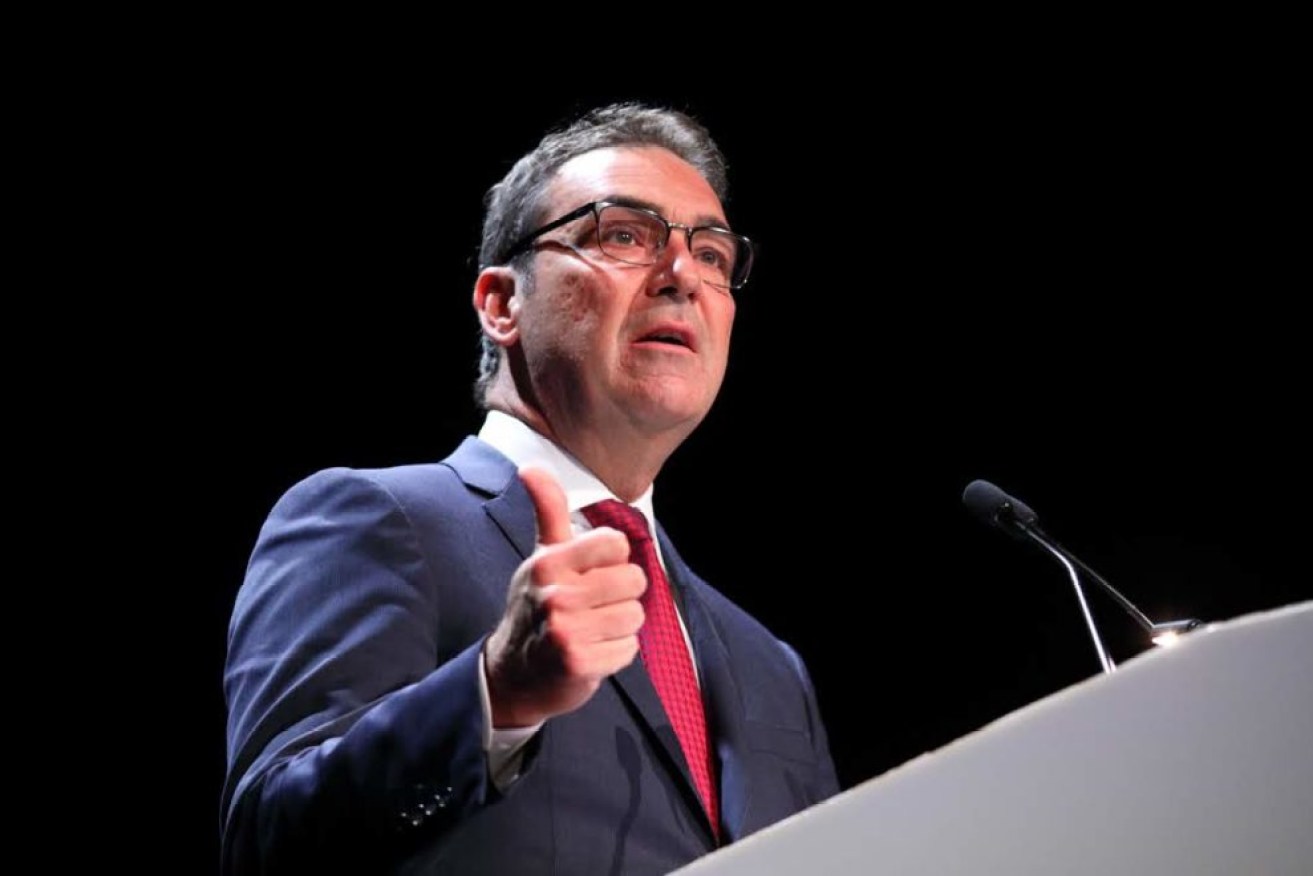Take up a trade rather than go to uni, Marshall urges South Australians
The naval shipbuilding program threatens to cause skills shortages across the South Australian economy and parents should encourage their children to take up a trade rather than study at university, Premier Steven Marshall says.


Steven Marshall: “All of you are saying to your kids … go to university. My answer to you is, stop it." Photo: Tony Lewis/InDaily
Marshall told an audience at the launch of the annual BDO South Australia State Business Survey last night that the naval shipbuilding program was destined to suck up much of the state’s skilled technical labour, leaving gaps in “every other sector”.
He said young South Australians needed to take up technical trades if the state’s economy is to avoid future skills shortages.
“All of you are saying to your kids … go to university,” said Marshall.
“My answer to you is, stop it.
“We need a lot more people in South Australia with technical skills (and) we want to make sure that people … look at an apprenticeship or a traineeship.”
He said the multi-billion dollar naval shipbuilding program at Osborne would drain skills from the wider economy.
Children who want to go to university, said Marshall, should be steered towards studying engineering.
“If we don’t (have more people with trade and engineering skills) I can tell you one thing – the naval shipbuilding programs will suck up a lot of our available technical skill, and we will be left with very significant deficits in every other sector, and that will drive up costs,” said Marshall.
“We do need some people to build these ships and work in lots of other sectors.”
Small-to-medium sized businesses are increasingly feeling the pinch of skills shortages, according to a survey presented last night.
The survey, conducted by accounting firm BDO Australia, finds that attracting and retaining staff is a major concern for the 170 businesses – almost of them all based in South Australia – that responded to it.
This year almost half of the survey’s respondents – 47 per cent – said it was hard to find and retain the right staff. That’s up from 38 per cent in 2017 and 33 per cent in 2016.
And almost two-thirds of those surveyed – 59 per cent – reported that educational institutions in South Australia “do not provide graduates with suitable skills”.
About 14 per cent of those surveyed had employed skilled migrants to fill workforce gaps in their business.
Half of the business operators surveyed said they expected to maintain the same number of staff, 42 per cent said they would increase their staff numbers and nine per cent said they expected to decrease their workforce during the 2018-19 financial year.
Industry concerns over the reliability and cost of electricity have fallen, according to the survey.
In 2017, 46 per cent of respondents said the reliability of energy “is slowing their business or stopping investment in growth”.
This year, 20 per cent of respondents reported the same problem.
In 2017, 47 per cent said the price of energy was stopping them investing in growing their business.
That number dropped to 35 per cent in this year’s survey.
The proportion of business owners considering investing in alternative energy sources from the grid stayed about the same, at 37 per cent last year and 36 per cent this year.




